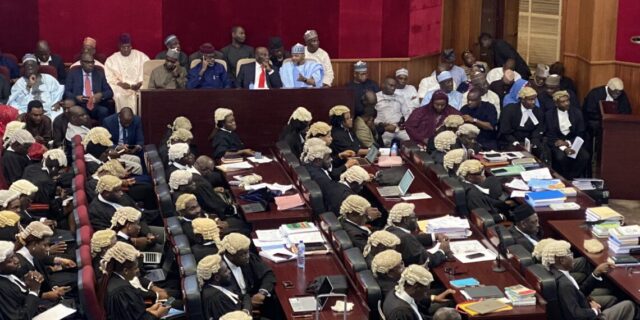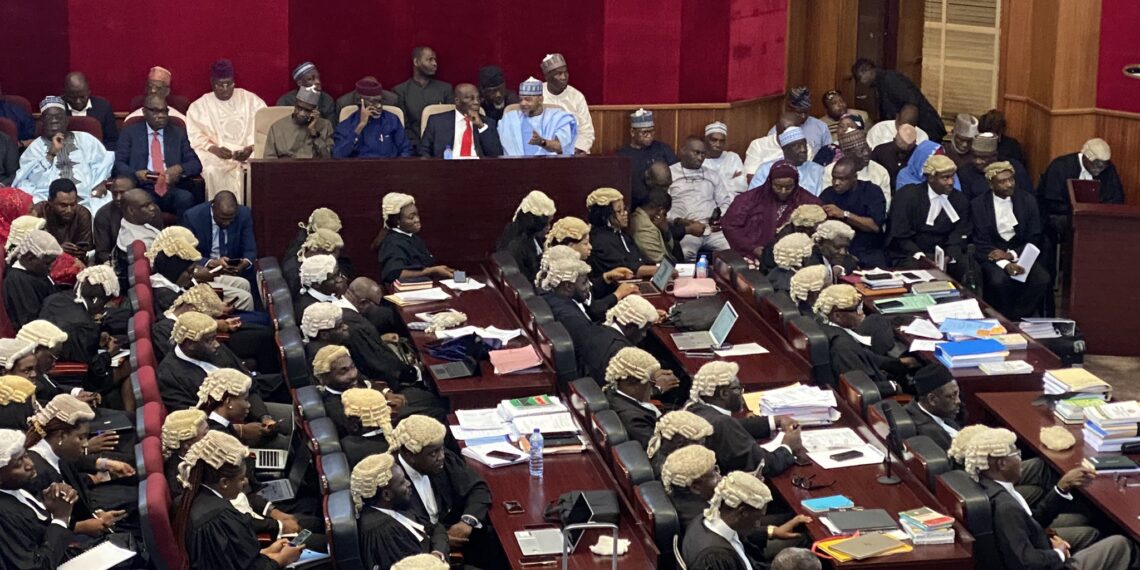
The Presidential Election Petition Court in Abuja on Tuesday ordered the merger of the three remaining petitions challenging the victory of Bola Tinubu in the 25 February election.
The five-member court panel led by Haruna Tsammani cited time constraints as the basis for its decision.
Paragraph 50 of the First Schedule of the Electoral Act 2022, which the court relied on, commands that all petitions arising from the same election and return of a candidate “shall be consolidated, considered and be dealt with as one petition”.
The provision allows the court or tribunal to decide against it only when it considers it to be a stumbling block to doing justice “or an objection against one or more of the petitions has been upheld by the tribunal or court”.
Now that the Presidential Election Petition Court has ordered the merger of the three petitions relating to the last presidential poll, what does it mean in a practical sense in a situation where the petitions share both similar and conflicting features?
The petitioners in two of the cases – Atiku Abubakar of the Peoples Democratic Party (PDP) and Peter Obi of the Labour Party – who came second and third in the election, respectively, both claimed to have won the poll.
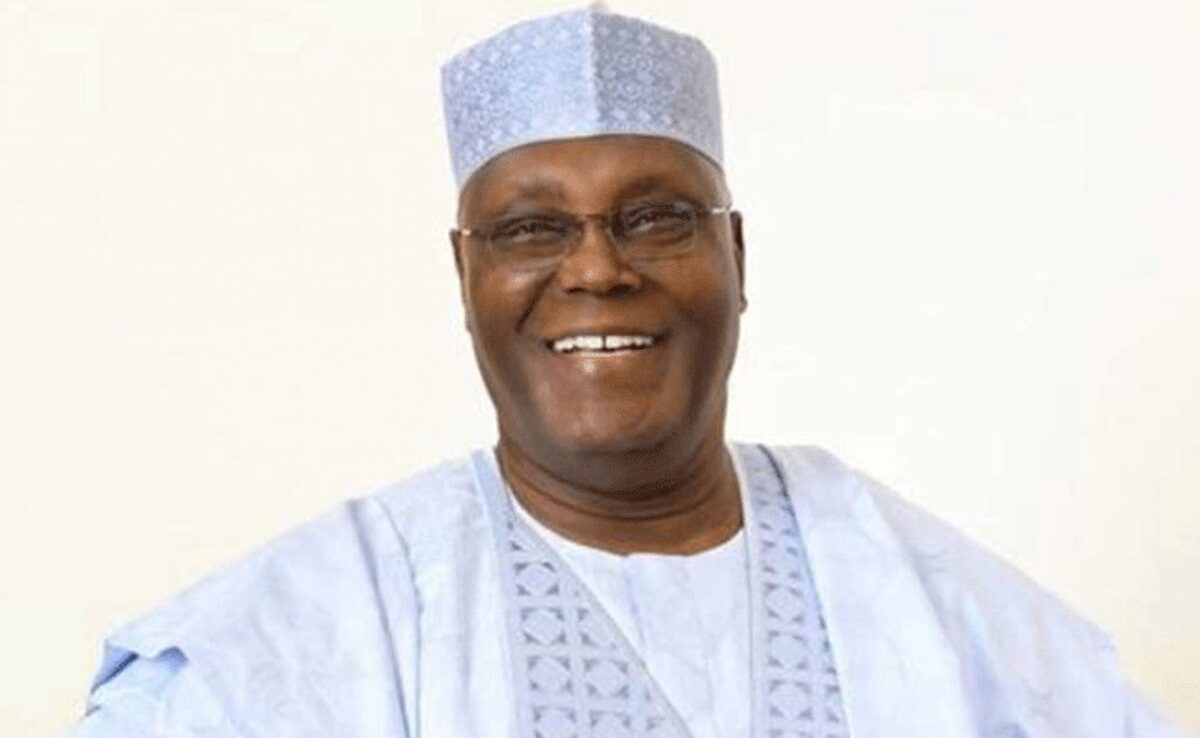
They also alleged widespread irregularities and manipulation of results in states where each other recorded the most votes.
Also, they have both called on the court to declare them the election winner that can only throw up one president-elect.
Their cases, however, have shared complaints of alleged ineligibility of the president-elect Mr Tinubu to contest the election, manipulation of results in most of the 12 states he won, and his failure to secure 25 per cent of lawful votes in the Federal Capital Territory, among others.
Another point of convergence between the two petitions is their alternative prayer for outright cancellation of the election to give way for the conduct of a fresh one from which Mr Tinubu and his party, the All Progressives Congress (APC), should be barred.
The third petition filed by the Allied Peoples’ Movement (APM), which is primarily anchored on the alleged inappropriate nomination of the vice-president-elect Kashim Shettima as Mr Tinubu’s running mate, urged the court to declare Atiku, the winner of the poll.
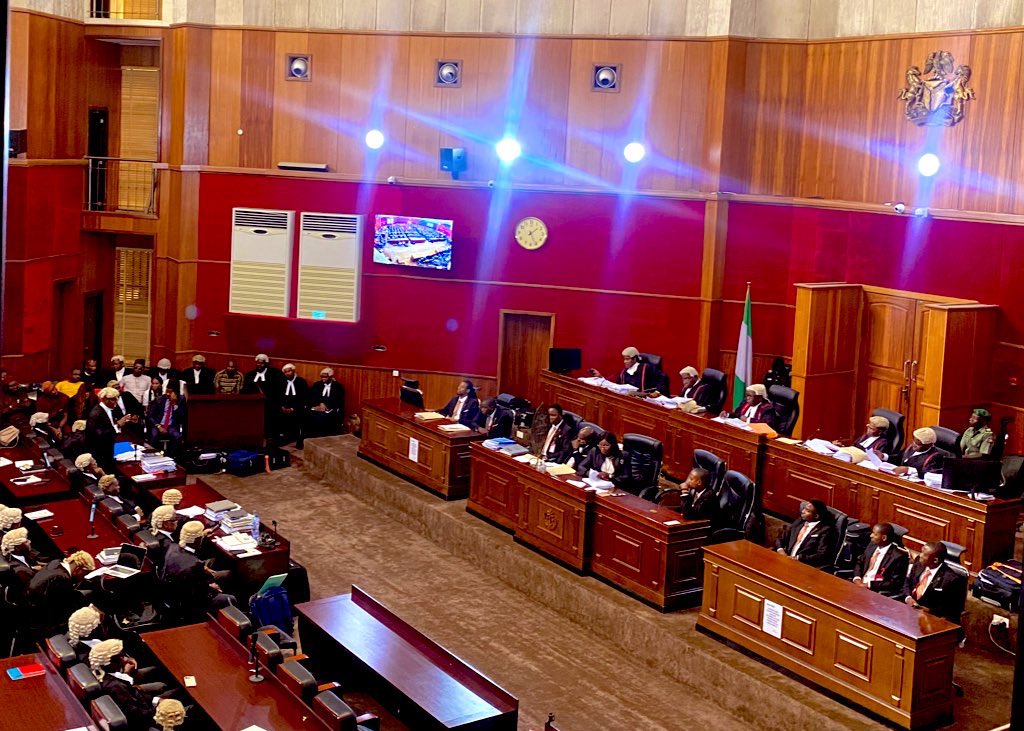
How do the three petitioners balance their competing and shared interests under the consolidation order of the court?
Possible scenarios
Lawyers say the consolidation could mean different things, as this is the first time presidential election petitions would be ordered to be consolidated.
Drawing from their litigation experience, some lawyers said all the cases are still likely to maintain their separate identities. In that sense, the petitioners will still pursue their cases independently, while the court will give one judgement that will capture all the cases in the end.
Another legal interpretation suggests that all three petitioners will take their turns to call their witnesses, at the end of which the respondents will take their turns to present their witnesses in response. Thankfully, the respondents sued in all the cases are the same – the Independent National Electoral Commission (INEC), Mr Tinubu, and the APC – with APM adding Mr Shettima to the list.
![President-elect, Bola Ahmed Tinubu. [PHOTO: @OfficialAPCNg]](https://media.premiumtimesng.com/wp-content/files/2023/03/tinubu-1.jpg)
If the consolidation is executed literally – the merger of all petitioners on one side and the respondents on the other side of the divide – some lawyers foresee a conflict in the camp of the petitioners that may inadvertently help the cause of their “common enemies”.
More clarity still needed
Two senior lawyers involved in the petitions before the presidential election court agree that the procedure to be followed is not clear-cut.
Chris Uche, a Senior Advocate of Nigeria, who is one of Atiku’s leading lawyers, said the parties would need to hear further directives from the court but pointedly, “One thing is clear, the petitions will maintain their identities.”
A likely procedure, according to Mr Uche, is one that allows petitioners to take their turns to conclude their case – present their witnesses and have them cross-examined by the adverse parties.
“It cannot be a full-fledged merger,” he said, adding that “the whole idea of the order of consolidation of the petitions is to ensure that judgements on the cases will not be contradictory.”
Mr Uche, whose team was indifferent to the call to consolidate the petitions, anticipates that the court, at the end of the trial, “will write three different judgments” for each pending case.
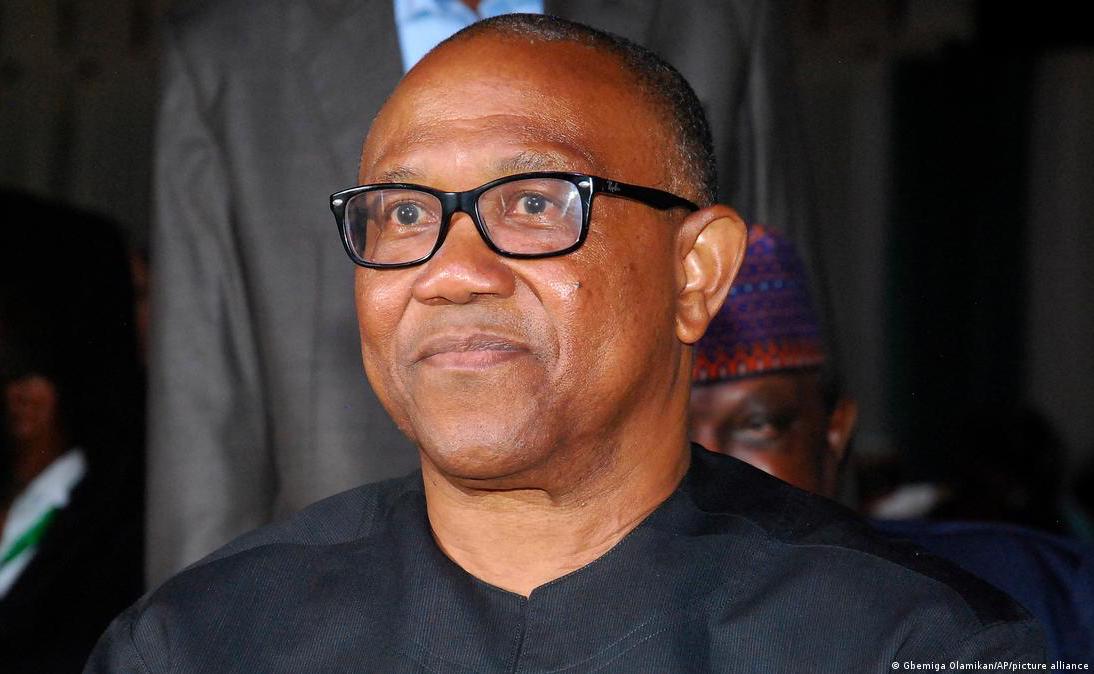
But he looks forward to 30 May when the hearing resumes for the court’s “further guidelines”.
INEC’s lawyer, Abubakar Mahmoud, whose client was also indifferent to the decision, shared largely the same views with Mr Uche on the lack of clarity in the form the next hearing phase will take.
Mr Mahmoud, a SAN and former president of the Nigerian Bar Association (NBA), also hopes that the court will make “further direction” for the post-consolidation phase of the proceedings.
“What we expect is that the petitioners will call their witnesses and the respondents cross-examine them one after the other, then after the conclusion of their case, the respondents will also call their witnesses who will also be cross-examined by the petitioners in a similar fashion,” he said.
Alternatively, Mr Mahmoud said each of the petitions could be taken one after the other as separate cases, a view that tallies with Mr Uche’s that a full-fledged consolidation may not happen.
Like Mr Uche, his courtroom opponent, Mr Mahmoud, agreed that the court would write separate judgements on each of the three petitions at the end of the trial.
According to him, one of the judgements will address the issues common to all the petitions, and the decisions on such legal points will be binding on all other cases. This means the court will not need to repeat the full details of its decisions on such issues in the other judgements.
“There could be deviations in the cases, but the general issues addressed by the court in one judgement will apply in the same manner to other cases,” Mr Mahmoud said.
Uncharted path
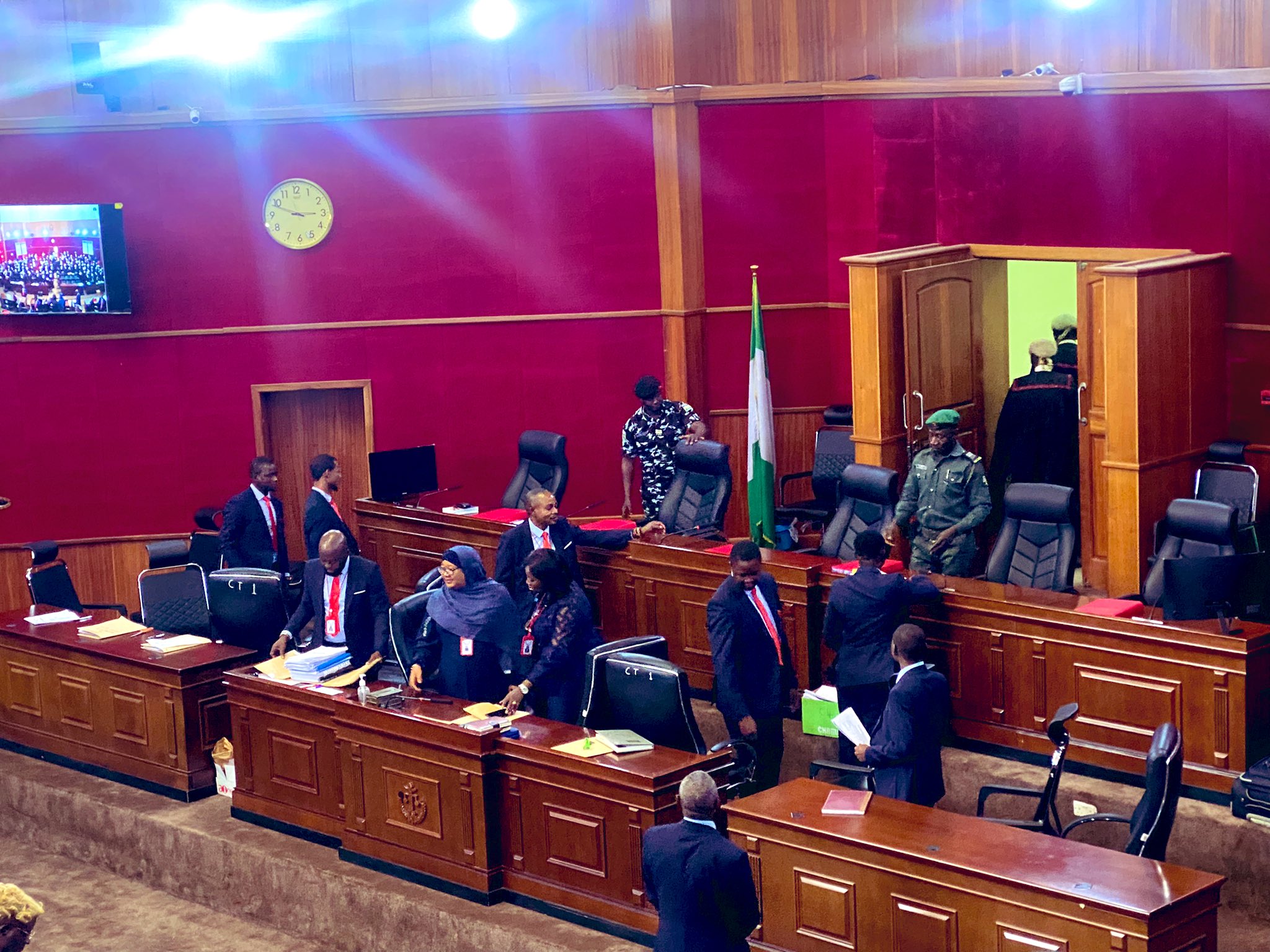
This is not the first time multiple petitions will be filed in court to challenge the outcome of a presidential election, but the consolidation of such cases is an uncharted path for a presidential election court.
Four petitioners challenged the election of the outgoing President Muhammadu Buhari in 2019, but only one ran its full span.
The Coalition for Change and its presidential candidate, Geff Ojinika, withdrew their petition on the day the pre-hearing session began on 10 June 2019.
The Peoples Democratic Movement (PDM), with its candidate, Aminchi Habu, also withdrew their own case weeks after.
Another of the petitions filed by the Hope Democratic Party (HDP) and its presidential candidate, Ambrose Owuru, was dismissed based on the preliminary objection of the respondents in the early stage of the proceedings.
Only the petition filed by PDP’s Atiku, who had Mr Obi as his running mate in the 2019 election, ran the full lifespan of the court.
In the current dispensation, five petitions filed in court in the wake of the announcement of the results of the 25 February presidential election dropped to three within the first week of the pre-hearing session.
The court now faces a legal regime that sets a strict time frame of 180 days from mid-March when the remaining three petitions were filed for it to deliver its judgements.
Parties to the cases have proposed to present close to 200 witnesses to testify, with the court confronted with a 16 September deadline to conclude proceedings.
Meanwhile, the inauguration of Messrs Tinubu and Shettima as the president and vice-present will be held on 29 May, while the petitions challenging their election will proceed in court.
It is expected that the litigation will continue at the Supreme Court, which has three months to decide on any appeal that may arise from the presidential election court’s judgement.

